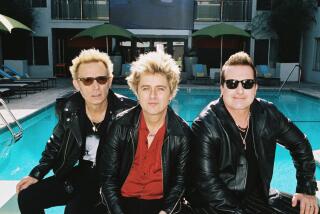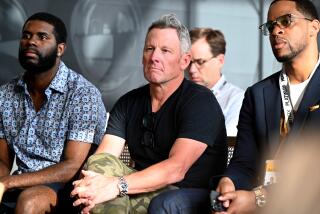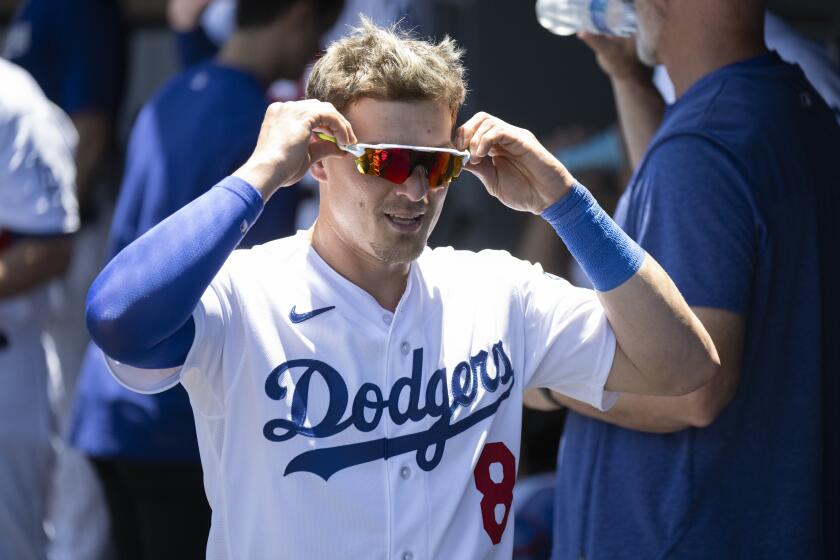Lance Armstrong leaves a far-reaching legacy
- Share via
Lance Armstrong and Brett Favre are tied for worst sports comeback.
Early last month, Favre retired for good (we think) from football. On Wednesday, Armstrong retired for good (we think) from cycling.
If the record-setting NFL quarterback and the record-setting Tour de France winner hadn’t changed their minds, both probably would be left alone to live life as sports heroes.
Instead, Favre got caught in an unseemly incident involving a female employee of the New York Jets and Armstrong is a focus of a wide-ranging grand jury investigation into doping and cycling.
If Armstrong had stayed retired after winning his seventh consecutive Tour de France in 2005, Floyd Landis might not have released a bunch of e-mails that brought chaos to Armstrong’s life last spring. In those e-mails, Landis accused Armstrong of doping, but was only trying to finagle a way onto Armstrong’s RadioShack team by threatening to go public.
Those e-mails attracted the attention of federal prosecutor Jeff Novitzky, who is leading the investigation into whether Armstrong and others on the U.S. Postal Service team in 2002 used performance-enhancing drugs.
And yet, it is impossible not to attach Armstrong’s name to competitive greatness and to meaningful charity work through his Livestrong Foundation.
If you think only about the sport, about the blue-eyed squint and the man who stood up, pushed those pedals down, who swerved and sped across an open field, hopped back into the peloton, avoided a crashed colleague with such instinctive power and creativity that you rubbed your eyes and wondered, “Did I just see that?” Or if you grinned a little and pounded your fist in appreciation when he turned to stare at a competitor just before leaving the guy gasping and sweating and suddenly staring at the blank spot where Armstrong and his bike had been. This is the Armstrong legacy.
If you also scrutinize the world of cycling and doping, of the decade-long parade of punished and admitted performance-enhancing miscreants, it’s easy to wonder, “Was Armstrong so much better or was he winning on an equal playing field?”
Although Armstrong has never failed a drug test and steadfastly refutes anyone who says he has doped, it’s hard not to wonder since all of his top challengers — notably Jan Ullrich and Ivan Basso — have been drug tarnished.
Bob Stapleton, co-owner of the rival HTC-Highroad team, said Armstrong’s career, how he beat cancer, how he started Livestrong, is a legacy wrapped more in good than bad.
“I think the story is so extraordinary,” Stapleton said, “that it is the results on the bike and with cancer that will be remembered 20 years from now. Whatever happens with the grand jury, it may call into question some of the magnitude of his athletic success but as an overall historical figure not much.”
He also points out that Armstrong had respect from his peers.
“He was just a beast on the bike,” Stapleton said, “a ferocious competitor and if he proved unstoppable it was because he did the work to improve.”
And maybe, just maybe, doping or no doping, this is the real key: Armstrong won on an even playing field.
twitter.com/mepucin
More to Read
Go beyond the scoreboard
Get the latest on L.A.'s teams in the daily Sports Report newsletter.
You may occasionally receive promotional content from the Los Angeles Times.










